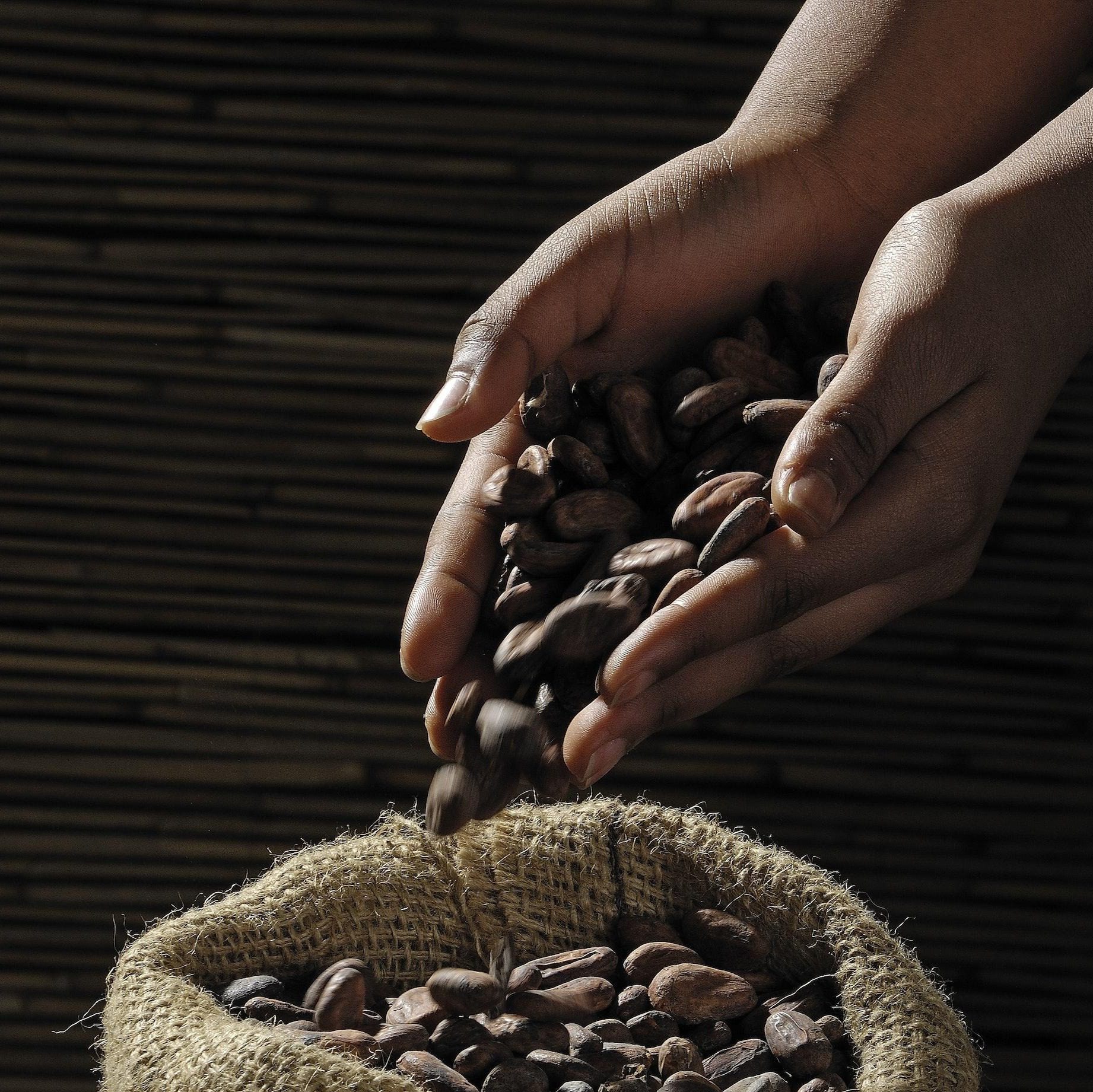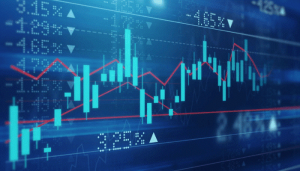FG ADDS 37 CRUDE EVACUATION ROUTES, OIL RIGS INCREASE TO 44
The Federal Government says it has approved 37 new crude oil evacuation routes across the country as part of reforms to bolster production and curb theft. It also said the number of crude oil rigs has increased from eight in 2020 to 44.
This was disclosed by the Chief Executive of the Nigerian Upstream Petroleum Regulatory Commission, Gbenga Komolafe, while speaking at the 24th edition of the NOG Energy Week 2025, on Wednesday in Abuja. Delivering a keynote address titled “Positioning Nigeria’s Upstream Oil & Gas for Energy Security, Sustainability, and Economic Resilience,” Komolafe said the new evacuation routes were part of a broader strategy to restore asset integrity, ensure secure transportation of crude, and support the ongoing Project One Million Barrels initiative. “With 37 new evacuation routes approved and implemented in collaboration with security agencies, we are curbing theft and boosting accountability,” Komolafe declared. “The impact is already evident; Nigeria’s production has climbed from 1.46 million barrels per day to 1.7 million bpd. Our target is to reach 2.5 million bpd by 2026, and we’re well on our way. As you can see, the rig count has been growing linearly. “After COVID-19, we moved from a regime where we had a rig count as low as 8 rigs in the Nigeria upstream. As of today, the rig count has increased to 44 rigs. Again, that is a huge achievement for us as a nation.” According to him, Nigeria’s oil and gas sector is undergoing a historic transformation under the administration of President Bola Tinubu, made possible by the implementation of the Petroleum Industry Act and a string of new executive orders introduced in 2024. “Let me be clear: under President Bola Ahmed Tinubu’s decisive leadership, we have seen a bold shift in policy direction. Executive Orders #40 on fiscal incentives, #41 on local content, and #42 on cost efficiency and contracting timelines have catalyzed over $16 billion in new investments in just two years,” the NUPRC boss said. Komolafe noted that securing crude oil infrastructure and ensuring domestic energy resilience were key pillars of the ongoing reforms.
LOCAL INVESTORS DRIVE N9TN NGX TRADES
Local investors, particularly domestic institutional players, have continued to dominate Nigeria’s equity market, driving N7.15tn of the N9tn total transactions recorded on the Nigerian Exchange Limited between January 2024 and May 2025. According to NGX data, domestic participation accounted for about 80 per cent of total trades, with foreign investors contributing N1.85 tn. The surge in activity reflects increased confidence among local players, driven by pension fund investments and policy reforms. Domestic investors have continued to assert dominance in Nigeria’s equities market, driving a total of N9.0 tn worth of transactions between January 2024 and May 2025, according to data released by the Nigerian Exchange Limited. The breakdown of portfolio participation showed that of the total N9.0 tn traded during the 17-month period, domestic investors accounted for N7.15 tn, representing approximately 80 per cent of the entire market activity, while foreign investors contributed N1.85 tn, accounting for the remaining 20 per cent. According to the NGX’s monthly Domestic & Foreign Portfolio Investment Reports, the total domestic transactions recorded in 2024 stood at N4.735 tn, while foreign transactions were N852.03 bn. In the first five months of 2025, domestic transactions amounted to N2.418 tn, while foreign transactions stood at N996.03 bn, bringing the overall trading figure for the 17-month period to N9.0 tn. A comparative analysis of 2024 against the previous year shows a 32 per cent year-on-year increase, with total transactions rising from N3.58 tn in 2023 to N5.59 tn in 2024. This growth was driven by increased participation from both foreign and domestic investors but particularly significant growth in domestic institutional activity. In December 2024, the market experienced a notable spike in trading activity. Total transactions surged to N673.66bn, representing a 52.29 per cent increase from N442.34bn recorded in November 2024. Domestic investors were responsible for N606.91bn, or 90.09 per cent, of the December trades, while foreign investors accounted for N66.75bn, representing 9.91 per cent. Further analysis revealed that institutional investors played a dominant role in December, executing N406.04bn worth of trades, representing a 97.09 per cent increase from N206.02bn in the previous month. Retail investor participation rose marginally by 2.81 per cent to N200.87bn, up from N195.38bn in November 2024. The foreign portfolio side also witnessed increased activity in December 2024. Foreign inflows stood at N26.26bn, while outflows amounted to N40.49bn, bringing the total foreign transactions to N66.75bn. This represented a 63.04 per cent increase compared to the N40.94bn recorded in November 2024. By the end of 2024, foreign transactions made up 15.25 per cent of total market activity, while domestic transactions-maintained dominance with 84.75 per cent, consistent with the historical trend observed over the last decade. In May 2025, equity market activity remained elevated, with total transactions reaching N700.50bn, marking a 45.32 per cent increase from N482.04bn recorded in April 2025. A year-on-year comparison showed that May 2025 trades increased by 97.11 per cent from N355.38bn in May 2024. Domestic participation continued to lead in May 2025, accounting for N581.59bn or 83.02 per cent of total market activity. Foreign transactions for the month rose to N118.91bn, representing 16.98 per cent of the total volume. This marked an 88.54 per cent increase from N63.07bn recorded in April 2025. Within the domestic segment in May 2025, retail investors outperformed institutional investors, contributing N337.46bn, a significant jump of 86.12 per cent compared to N181.31bn in April. Institutional investor participation, however, increased marginally by 2.72 per cent, from N237.66bn in April to N244.13bn in May. Foreign inflows in May 2025 stood at N66.11bn, while outflows were N52.80bn, signalling a slightly positive net inflow trend for the period. This contrasts with March 2025, when foreign investor participation peaked at 62.74 per cent, recording inflows and outflows of N349.97bn and N349.92bn, respectively. Year-to-date, as of May 2025, total transactions on the NGX stood at N3.41tn, up from N2.25tn recorded within the same period in 2024. Domestic investors contributed N2.418 tn to the 2025 total, while foreign investors accounted for N996.03 bn, indicating a marked increase in foreign appetite for Nigerian equities compared to the same period the previous year.
NIGERIA’S ECONOMY GROWS 3.7% IN H1
The Nigerian economy is estimated to have grown by about 3.7 per cent in the first half of 2025, driven by improved business conditions and increased oil production. This was revealed in the Stanbic IBTC Bank Nigeria Purchasing Managers’ Index (PMI) report compiled by S&P Global and released on Tuesday. The PUNCH recently reported that the World Bank reaffirmed its projection that Nigeria’s economy would grow by 3.6 per cent in 2025, higher than the 3.4 per cent recorded in 2024, despite shifts in global trade dynamics. This projection is lower than the Central Bank of Nigeria’s estimate of 4.17 per cent and the ambitious 5.5 per cent GDP growth forecasted by the Nigerian Economic Summit Group in January. According to Muyiwa Oni, Head of Equity Research, West Africa at Stanbic IBTC Bank, the estimated 3.7 per cent year-on-year GDP growth aligns with expectations for annual growth of 3.5 per cent. He said, “Insights from the monthly PMIs and crude oil production data from the Nigerian Upstream Petroleum Regulatory Commission suggest an economy that grew by an estimated 3.7 per cent y/y in H1 2025, supported by higher crude oil production and improved growth in manufacturing and services, while agriculture continues to lag its long-term average growth rate of 3.6 per cent.” On inflation and interest rates, Oni added, “Given that inflation is expected to remain softer compared to the 2024 average, interest rates are likely to be lower this year and next, we expect a 150–200 bps rate cut in 2025 and a 200–250 bps cut in 2026.” He said these factors, combined with structural reforms, the removal of protectionist policies, and the fading impact of earlier government reforms, should support medium-term economic growth. “We still expect the Nigerian economy to grow by 3.5 per cent y/y in real terms in 2025, but post-GDP rebasing may amplify this growth to 4.2 per cent y/y,” he added. The June PMI reading showed that business conditions remained in expansionary territory for the seventh consecutive month, although the pace of growth slowed for the third straight month after peaking in March. The headline PMI stood at 51.6 points in June, down from 52.7 points in May and below the 2025 average of 53.1 points. The report attributed the slower pace to a decline in manufacturing output, while other sectors continued to grow. “Where output rose, respondents linked this to higher new orders and the acquisition of new customers. Indeed, new business increased solidly in June, though the pace of expansion slowed to a five-month low.” Despite the slowdown, business confidence improved. “Sentiment reached its highest level since August 2022, nearing the series average. Those predicting growth cited plans to expand operations and invest in infrastructure.” Staffing levels remained largely stable in June after a slight decline in May. Backlogs of work increased for the third month in a row, attributed to material shortages, delayed payments, and power supply challenges. Supplier delivery times were mostly unchanged, with some firms citing poor road conditions as a cause of delays. The Stanbic IBTC Bank Nigeria PMI is compiled by S&P Global using responses from purchasing managers in a panel of around 400 private-sector companies, covering agriculture, mining, manufacturing, construction, wholesale, retail, and services. Data collection began in January 2014.
LOCAL INVESTORS DRIVE N9TN NGX TRADES
Local investors, particularly domestic institutional players, have continued to dominate Nigeria’s equity market, driving N7.15tn of the N9tn total transactions recorded on the Nigerian Exchange Limited between January 2024 and May 2025. According to NGX data, domestic participation accounted for about 80 per cent of total trades, with foreign investors contributing N1.85 tn. The surge in activity reflects increased confidence among local players, driven by pension fund investments and policy reforms. Domestic investors have continued to assert dominance in Nigeria’s equities market, driving a total of N9.0 tn worth of transactions between January 2024 and May 2025, according to data released by the Nigerian Exchange Limited. The breakdown of portfolio participation showed that of the total N9.0 tn traded during the 17-month period, domestic investors accounted for N7.15 tn, representing approximately 80 per cent of the entire market activity, while foreign investors contributed N1.85 tn, accounting for the remaining 20 per cent. According to the NGX’s monthly Domestic & Foreign Portfolio Investment Reports, the total domestic transactions recorded in 2024 stood at N4.735 tn, while foreign transactions were N852.03 bn. In the first five months of 2025, domestic transactions amounted to N2.418 tn, while foreign transactions stood at N996.03 bn, bringing the overall trading figure for the 17-month period to N9.0 tn. A comparative analysis of 2024 against the previous year shows a 32 per cent year-on-year increase, with total transactions rising from N3.58 tn in 2023 to N5.59 tn in 2024. This growth was driven by increased participation from both foreign and domestic investors but particularly significant growth in domestic institutional activity. In December 2024, the market experienced a notable spike in trading activity. Total transactions surged to N673.66bn, representing a 52.29 per cent increase from N442.34bn recorded in November 2024. Domestic investors were responsible for N606.91bn, or 90.09 per cent, of the December trades, while foreign investors accounted for N66.75bn, representing 9.91 per cent. Further analysis revealed that institutional investors played a dominant role in December, executing N406.04bn worth of trades, representing a 97.09 per cent increase from N206.02bn in the previous month. Retail investor participation rose marginally by 2.81 per cent to N200.87bn, up from N195.38bn in November 2024. The foreign portfolio side also witnessed increased activity in December 2024. Foreign inflows stood at N26.26bn, while outflows amounted to N40.49bn, bringing the total foreign transactions to N66.75bn. This represented a 63.04 per cent increase compared to the N40.94bn recorded in November 2024. By the end of 2024, foreign transactions made up 15.25 per cent of total market activity, while domestic transactions-maintained dominance with 84.75 per cent, consistent with the historical trend observed over the last decade. In May 2025, equity market activity remained elevated, with total transactions reaching N700.50bn, marking a 45.32 per cent increase from N482.04bn recorded in April 2025. A year-on-year comparison showed that May 2025 trades increased by 97.11 per cent from N355.38bn in May 2024. Domestic participation continued to lead in May 2025, accounting for N581.59bn or 83.02 per cent of total market activity. Foreign transactions for the month rose to N118.91bn, representing 16.98 per cent of the total volume. This marked an 88.54 per cent increase from N63.07bn recorded in April 2025. Within the domestic segment in May 2025, retail investors outperformed institutional investors, contributing N337.46bn, a significant jump of 86.12 per cent compared to N181.31bn in April. Institutional investor participation, however, increased marginally by 2.72 per cent, from N237.66bn in April to N244.13bn in May. Foreign inflows in May 2025 stood at N66.11bn, while outflows were N52.80bn, signalling a slightly positive net inflow trend for the period. This contrasts with March 2025, when foreign investor participation peaked at 62.74 per cent, recording inflows and outflows of N349.97bn and N349.92bn, respectively. Year-to-date, as of May 2025, total transactions on the NGX stood at N3.41tn, up from N2.25tn recorded within the same period in 2024. Domestic investors contributed N2.418 tn to the 2025 total, while foreign investors accounted for N996.03 bn, indicating a marked increase in foreign appetite for Nigerian equities compared to the same period the previous year.
NIGERIA RECORDS SECOND MONEY SUPPLY DECLINE
Nigeria’s broad money supply declined for the second time this year, falling slightly to N119.01tn in May 2025, according to fresh data from the Central Bank of Nigeria. The drop represents a month-on-month contraction of N292.75bn or 0.25 per cent from the N119.30tn recorded in April. The first decline of 2025 was recorded in February, when the figure dropped to N110.32tn from N110.94tn in January. Despite the slight decline in May, the money supply remains near record highs, reflecting the residual effects of earlier liquidity surges and ongoing adjustments in monetary policy. Year-on-year, the growth is more striking. Broad money supply expanded by N19.77tn from N99.24tn in May 2024, representing a 19.9 per cent increase and highlighting the scale of monetary expansion over the past 12 months. A breakdown of the figures shows a shift in the structure of Nigeria’s liquidity base. Net foreign assets, which had risen to N49.87tn in April, dropped sharply to N45.81tn in May, indicating a decline of N4.05tn or 8.1 per cent. The contraction suggests that Nigeria’s external asset position may have weakened, potentially due to drawdowns on foreign reserves or reduced inflows. In contrast, net domestic assets increased from N69.43tn to N73.19tn within the same period, a rise of N3.76tn or 5.4 per cent. The rise in domestic liquidity helped offset the fall in foreign assets and prevented a more pronounced contraction in the overall money supply. The contraction extended to M2, the intermediate measure of money supply, which excludes certain institutional holdings. M2 fell marginally from N119.28tn in April to N118.99tn in May, a decline of N283bn or 0.24 per cent. This mirrors the overall decline in M3 and signals a broader tightening trend in the financial system. Similarly, narrow money or M1—which includes currency in circulation and demand deposits—also dipped, dropping from N41.00tn to N40.38tn in May. The decline of N624.5bn or 1.5 percentage points points to a reduction in the most liquid forms of cash within the economy. Despite the month-on-month decline, M1 remains significantly elevated compared to last year. Narrow money stood at N33.38tn in May 2024, indicating a year-on-year increase of 20.9 per cent. This reinforces the view that the system is still awash with liquidity, even as the CBN intensifies efforts to rein it in. Year-on-year data also show that total money supply (M3) rose by almost N20tn between May 2024 and May 2025. The surge was largely driven by an expansion in net foreign assets, which jumped from N15.34tn in May 2024 to N45.81tn in May 2025—an increase of over 198 per cent. The sharp rise may be attributed to improved external financing conditions, higher oil revenues, and inflows from Eurobond issuances and diaspora remittances. However, the increase in foreign assets was accompanied by a decline in domestic liquidity. Net domestic assets dropped by N10.71tn over the same period, from N83.90tn to N73.19tn. The fall points to a tightening of credit and government borrowing or a scaling back of CBN’s claims on the financial system. The apex bank’s tighter monetary stance—reflected in a high Monetary Policy Rate and aggressive open market operations—is beginning to filter through the system.
NGX ANNOUNCES MAJOR OVERHAUL OF MARKET INDICES
The Nigerian Exchange Limited has announced a midyear review of its market indices, leading to the inclusion and removal of companies across several benchmark indices. The changes took effect at the start of trading on Tuesday, July 1, 2025. According to a statement issued by the Exchange, the affected indices include the NGX 30; NGX Lotus Islamic; NGX Pension; NGX Pension Broad Index; Corporate Governance Index; Afrinvest Bank Value Index; Afrinvest Dividend Yield Index; Meristem Growth Index; and Meristem Value Index, as well as the five sectoral indices: Banking, Insurance, Industrial, Consumer Goods, and Oil & Gas. For the 30 Index, Aradel Holdings Plc, Wema Bank Plc, Conoil Plc, and Julius Berger Nigeria Plc were added. In the NGX Consumer Goods Index, McNichols Consolidated Plc and Golden Guinea Breweries Plc joined the list. LASACO Assurance Plc, Fortis Global Insurance Plc, and International Energy Insurance Plc were added to the Insurance Index, while Austin Laz & Company Plc and Notore Chemical Industries Plc were included in the Industrial Index. No changes were made to the NGX Banking, NGX Oil & Gas, NGX Pension, NGX Lotus Islamic, Corporate Governance, and NGX Pension Broad indices. In the Afrinvest Dividend Yield Index, Access Holdings Plc, FCMB Group Plc, and Julius Berger Nigeria Plc were added. The Meristem Growth Index saw the inclusion of Wema Bank Plc, Chemical and Allied Products Plc, Guaranty Trust Holding Company Plc, Fidelity Bank Plc, Transnational Corporation Plc, United Bank for Africa Plc, Unilever Nigeria Plc, and Guinness Nigeria Plc. Meanwhile, United Bank for Africa Plc, Unilever Nigeria Plc, Guinness Nigeria Plc, and Julius Berger Nigeria Plc were added to the Meristem Value Index.
- CAPITALDIGEST MARKET REVIEW, 09/02/2026February 9, 2026
- CAPITALDIGEST DAILYNEWS, 09/02/2026February 9, 2026
- CAPITALDIGEST MARKET REVIEW, 02/02/2026February 2, 2026
Enter your email address for receiving valuable newsletters.
- CAPITALDIGEST MARKET REVIEW, 09/02/2026U.S. DOLLAR REBOUND TO BE CUT SHORT BY RATE CUT BETS, DOUBTS OVER FED INDEPENDENCE:...February 9, 2026
- CAPITALDIGEST DAILYNEWS, 09/02/2026TAXES, FUEL HIKE SLOW BUSINESS GROWTH IN JANUARY – NESG REPORT The report showed that...February 9, 2026
- CAPITALDIGEST MARKET REVIEW, 02/02/2026DOLLAR WEAKENS ACROSS THE BOARD AS YEN CLIMBS ON INTERVENTION RISK The dollar moved sharply...February 2, 2026















